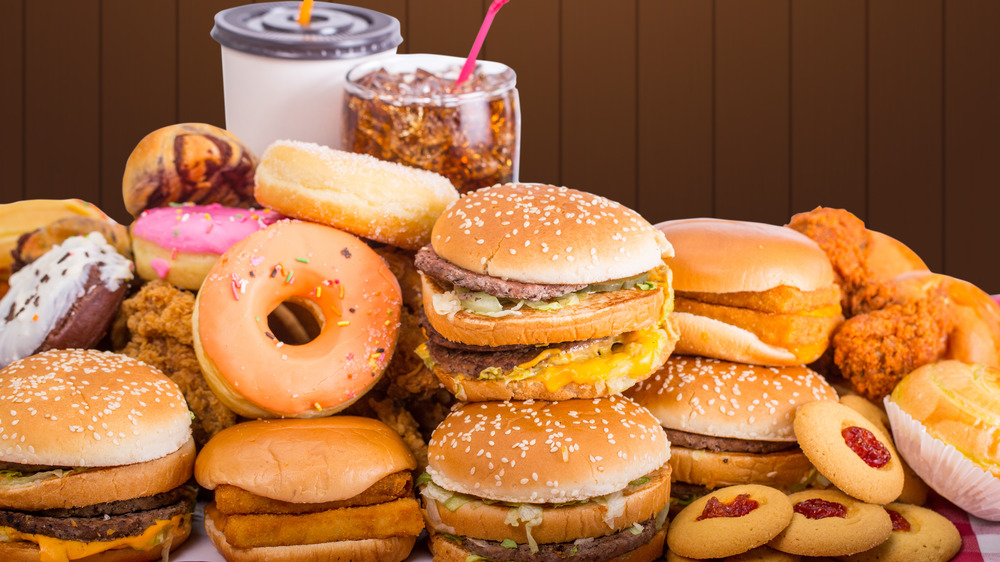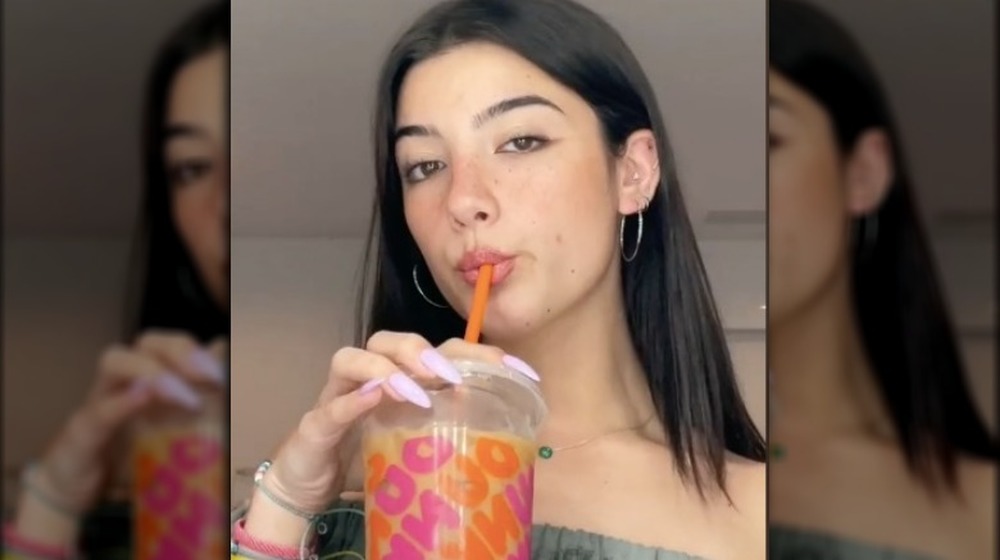The Reason Fast Food-Related TikToks Are So Concerning
On TikTok, a video of two teenage-looking boys (@thecheekyboyos) launching a Chipotle burrito into space has over 12.1 million views. When Chipotle reposted the video, it garnered nearly another half a million. (Do you need a burrito?) McDonald's recently posted a "duet" with an Irish dancer, to promote its Saint Patrick's day menu offerings. (And yes, we want a Shamrock Shake after watching it.) If you're active on TikTok, maybe in 2020, you copied influencer Loren Gray's, Avani's, or Nathan Davis Jr.'s viral dance moves to get yourself a $1.00 Whopper from Burger King (via QSR).
Or, perhaps you follow Charli D'Amelio. When D'Amelio made a deal with Dunkin' Donuts to promote her own, drink "The Charli," Dunkin's app downloads rose by 57 percent, and the coffee chain found that cold brew sales "meaningfully" rose (via Business Insider). According to Influencer Marketing Hub's estimates, Charlie D'Amelio made around $4 million off of her sponsorship deals in 2020. Meanwhile, TikTok influencer Micahel Le, who's partnered with Bang energy drinks, earned $1.2 million.
For TikTok influencers like D'Amelio and Le, fast-food-related TikToks are a living. For fast-food chains, TikTok marketing is a gold mine. (Remember when Chipotle launched a #GaucDance challenge on the social media platform? That contributed to a 68 percent increase in customers ordering avocado-based foods for National Avocado day 2019, says Forbes.) But if fast-food company-sponsored TikToks are a godsend for companies like Chipotle, they may be a dangerous, health-damaging honeytrap for TikTok's predominantly young users.
The danger behind Fast Food's "Insidious" TikTok marketing tactics
As Civil Eats points out, 32 percent of TikTok's users are young: between ten and 19 years of age. While it makes sense for fast food chains to target Generation Z (a demographic that spends around one-fifth of its funds on food, according to QSR), the potential effects of such advertisements on youths' health troubling. Nutrition counselor & researcher Joan Ifland, Ph.D., talked to Mashed about the case of Charli D'Amelio and her sugar-filled Dunkin' Donuts drink. For Ifland, Dunkin's TikTok tactic represented "a new low in the addiction business mode." Ifland signaled that "targeting the teen demographic with caffeine, sugar, and dairy is damaging ... as teens are already suffering from hormonal shifts [and] they experience this as heightened anxiety and mood swings."
Ethically, too, Generation Z should know they're being hit with an ad. On TikTok, that's not always the case. "While all child-directed food marketing is troubling, social media marketing is particularly insidious," food expert Bettina Elias Siegel told Civil Eats. Seigel explained that on social media, "The marketing is so seamlessly woven into the platform that even older kids and teens may not realize the influencer is being paid to shill the product, or that he or she is hoping to catch the attention of a brand for eventual sponsorship." FTC guidelines encourage social media influencers to disclose when they are paid to advertise for a company. Complying with those guidelines is, however, voluntary.

